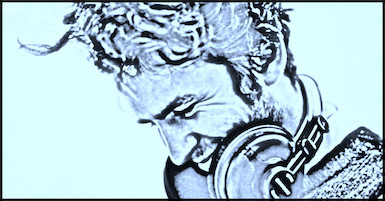
Q: Do you think it’s okay to pitch a home recorded version of a song or should I have the song professionally recorded?
…The answer is: t will depend on how elaborate your demo needs to be. You can record a simple acoustic guitar and vocal or piano and vocal with a minimum of gear. A couple of microphones may be all you need for a Singer-Songwriter demo. If your song is good, your playing is confident and steady, and your vocal performance is emotionally authentic, you’re well on your way to having a song that might work for the Film & Television market or streaming for fans of acoustic music.
For this style, experiment with different mic placement before you make you final recording. Try placing one mic close to your mouth (slightly off to the side to avoid pops) and the other mic near the sound hole in your acoustic guitar. If you like the result, a little additional reverb can add depth and atmosphere.
If you need to record songs in more complex music genres, like Pop/Dance or R&B, then the ability to record at home will depend on how good your home studio is and your skills as an arranger/producer. You’ll need to know your way around a DAW (Digital Audio Workstation) like Logic or ProTools.
Live drums are tough to record at home, so many of today’s successful songs rely on drum loops and percussion samples. In fact, you can find loops that include not only drums but also synthesizers, acoustic and electric guitar, and more. Look for these on sites like Beatstars.com. You can license a beat, loop it, and record your vocal in your home studio.
Who are you pitching to?
If you’re going to be pitching your song to a music publisher, then your demo needs to have a professional sound and production. Unless you’re an experienced producer with studio quality gear, that will be hard to achieve at home. You can either look for a collaborator with those skills or hire a demo studio to produce your track.
If you think you can arrange and play all the parts you need but you haven’t got a lot of experience with mixing, then consider hiring a professional engineer for the mix. It’ll save you time and you can learn by watching and listening. These kinds of hybrid productions (home and studio) can save you money. Decide up front how much of the production you can do at home and how much will you need to do in the studio. Be realistic about what you’re capable of and use a pro when you need to.
So, how good does it need to be?
Your demo, whether you record it at home or in a professional studio, has to put across the emotion and energy of your song. That’s the bottom line.
This doesn’t mean you have to record an elaborate, expensive demo. A guitar/vocal or piano/vocal can work if you’re a singer-songwriter pitching to film and TV. But if you’re pitching a mainstream Pop/Dance anthem to a Katy Perry, then the demo needs to be current and produced to the point where listeners have a good idea of the song’s hit potential.
The goal of any recording—whether it’s done in a home studio or a pro studio with session musicians—is to put the song across to the listener, whether that listener is a music publisher or a fan. Keep that in mind while you’re recording and you should end up with something you can be proud to pitch.
